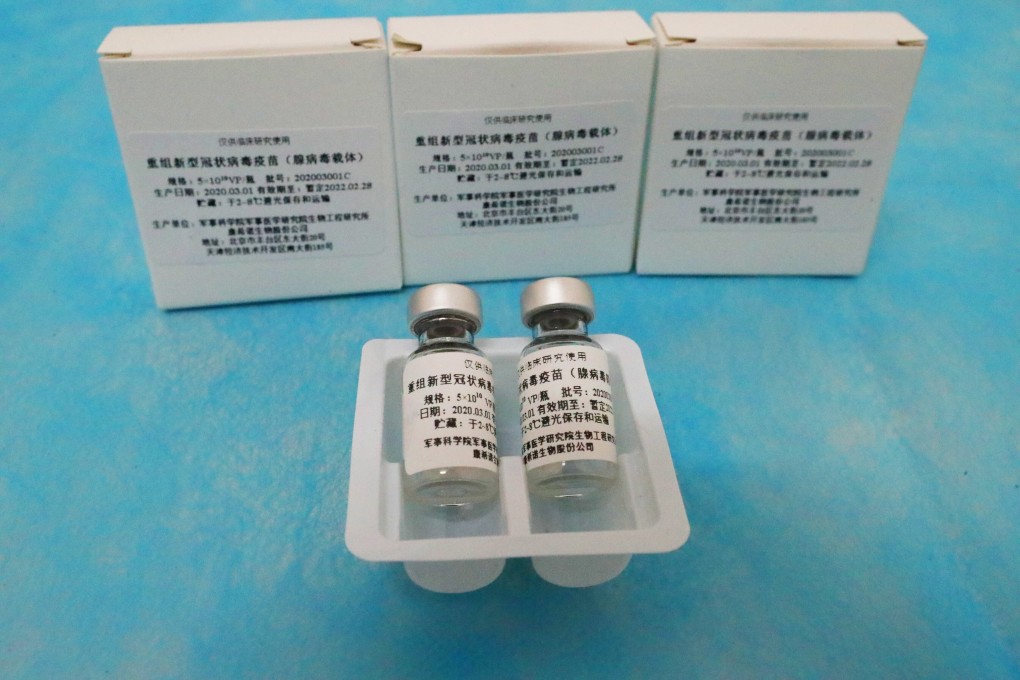Covid-19 vaccines made by China’s Sinopharm, CanSino release efficacy data
- Wuhan unit of state-owned Sinopharm, whose first vaccine was approved for general use in December, says second product has an efficacy rate of 72.5 per cent
- CanSino puts efficacy rate of its vaccine at 65 per cent, but says it is 90 per cent effective at preventing severe symptoms

The announcement by the Wuhan Institute of Biological Products came after months of phase 3 clinical trials in several countries around the world. It was the first time the company had published such data, though it did not elaborate on the bare figures.
Also on Wednesday, Chinese firm CanSino said interim analysis of the results of its final-stage vaccine trials showed it to have an efficacy rate of more than 65 per cent.
Both companies are now hoping to have their vaccines approved for general use in China, having filed applications this week to the National Medical Products Administration.
SinoVac’s vaccine was approved for general use in China this month. It was earlier found to be 50.6 per cent effective in preventing Covid-19 in a trial involving health care workers in Brazil, but 91 per cent effective in a much smaller trial conducted in Turkey.